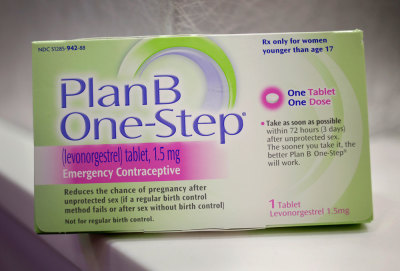The Pill Many Christians Don't Know Can Cause an Abortion

The morning-after pill (i.e. Plan B) can cause an early abortion. This is an uncomfortable fact for many Christian pro-lifers, many of whom have been told that the morning-after pill isn't an abortifacient and only prevents pregnancy. After all, that's what the box says right?
While the Plan B box often says that this drug doesn't harm an existing pregnancy, that's only because of a semantics play. In 1965, the American College of Obstetricians and Gynecologists changed the definition of pregnancy to be implantation, or attachment of a zygote to the uterine wall. This allows drug companies to say that Plan B or similar drugs will not harm an existing pregnancy, so pro-lifers then reasonably don't see an issue with using it. But changing the definition of pregnancy doesn't actually change when life and a pregnancy begins; it's just a political word game. And it's not even a game all doctors play.
A 2011 study reported in the American Journal of Obstetrics & Gynecology found that more than half (57 percent) of Obstetrician-gynecologists believe pregnancy begins at conception – NOT implementation. Only 28 percent said life began at implantation, showing that not even doctors dealing daily with the miracle of life followed the company line about when we become a unique creation.
Despite what Bill Nye, the self-proclaimed science guy, might say, it's clear that life begins at the moment of conception. Those who argue that life occurs when the united sperm and egg attach to the uterine wall are saying that it's not the unique make up of life itself that's important – it's the location of that life. At the moment a sperm and egg unite, a unique, whole, living human being with its own never-to-be-duplicated DNA is created. Whether or not it's attached to the mother's womb is just geography, not biology.
About that--often buried somewhere on the box is a notice that one way Plan B functions is to prevent implantation of a "fertilized egg." According to the Plan B website, "Plan B One-Step works mainly by stopping the release of an egg from the ovary. It is possible that Plan B One-Step may also work by preventing fertilization of an egg (the uniting of sperm with the egg) or by preventing attachment (implantation) to the uterus (womb)."
Again, what is a fertilized egg? It's a zygote. This term comes from a Greek word meaning to join together. Using a foreign-sounding name to say fertilized egg may confuse people, leading them to think it's an insignificant step in a pregnancy. But, if you are purposely preventing the implantation of a zygote, which has the unique signature of new life, you are purposely ending a pregnancy, which is an abortion.
Oftentimes in talking on campus I bring up how the morning-after pill can cause an early abortion. I've had plenty of arguments with people, including fellow Christian pro-lifers, over whether or not pro-lifers should go after the morning-after pill, or if we should focus on other abortion issues. But, no one has been able to convince me that the morning-after pill doesn't cause abortions.
There is a similar issue with hormonal contraception, such as intrauterine devices (IUDs) and the Pill, because they function the same way as Plan B (Plan B is essentially a stronger dose of the Pill).
While often swept under the rug, it is a scientific fact that hormonal contraception can prevent the implantation of a zygote. This is an abortion. Deliberately preventing a zygote from being able to attach to the uterine wall is an abortion.
For many this may be an uncomfortable truth. But, the point is not to shame Christian pro-life women who have used hormonal contraception or Plan B, After all, without the knowledge that birth control can cause an abortion, there is no moral issue at play. However, the point is to inform pro-lifers that the contraception they are using can act as an abortifacient.
Life begins at conception; the moment sperm fertilizes an egg. From that point on, any deliberate action to prevent that pregnancy from continuing is an abortion. In the Christian community, we need a better understanding of implications of many birth control and Plan B choices, so that we can better inform women who have often been left in the dark about what is really happening to them and sometimes to their preborn infants.



























